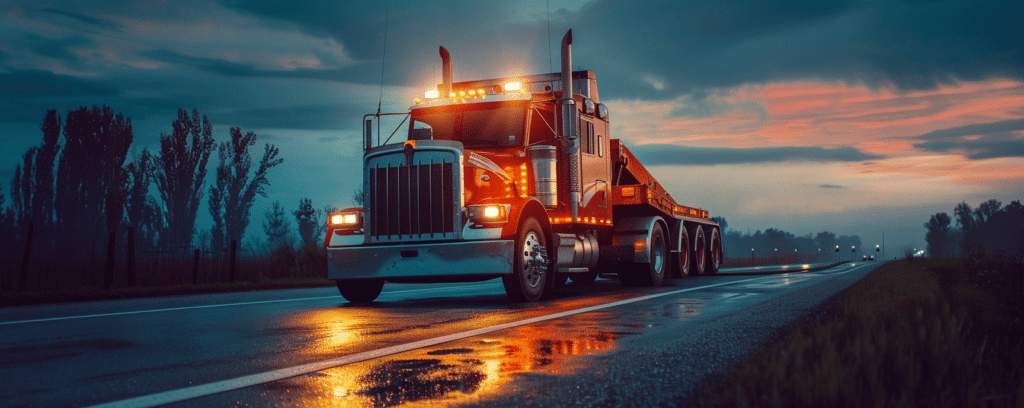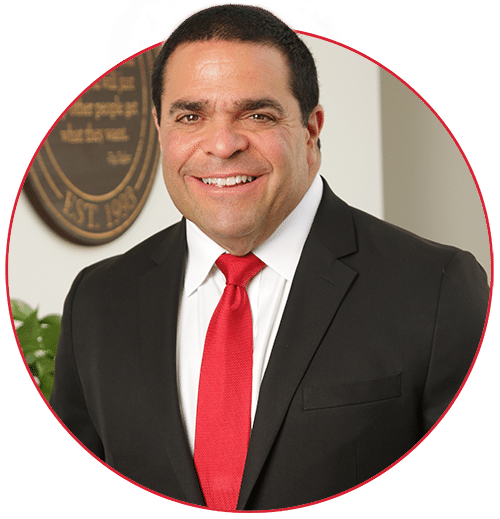Tow Truck Damaged My Car: Effective Steps for Seeking Compensation
Last updated Wednesday, September 18th, 2024

If you’re dealing with a ‘tow truck damaged my car’ scenario, you may feel a mix of anger and helplessness. This article is your ally, offering a no-nonsense guide on the next steps to take. Learn how to document the damage, communicate effectively with the tow company, understand your insurance coverage, and decide when it’s time to consult a legal professional. Solid guidance awaits to help you navigate this challenging situation with confidence.
Key Takeaways
- Document the incident immediately, including taking photos of the damage and obtaining witness statements, as it strengthens the claim against the towing company.
- Understand your rights, the towing company’s liabilities, and the potential effects of any damage waivers signed, which may influence your ability to seek compensation.
- Consider both filing an insurance claim and seeking legal action depending on the towing company’s response, the extent of the damage, and the coverage of your policy.
Immediate Actions After Tow Truck Damage
When you discover that your car is damaged after a towing incident, time is of the essence. The first steps you take can significantly impact your ability to seek compensation. It’s crucial to promptly document the damage and contact the towing company. By acting quickly, you create a strong foundation for your claim, making it harder for the towing company to dispute its responsibility.
Document the Incident
The moment you notice your vehicle has been damaged, it’s essential to gather as much visual evidence as possible. Take clear photos or videos of the damage, showing tire marks, bumper damage, or any other signs that point to the incident. If you had the foresight to take pictures before the towing process, those could serve as a before-and-after comparison, bolstering your claim.
Additionally, if there were any witnesses to the towing, their statements could be invaluable. Combine this with other evidence such as vehicle diagnostics and repair estimates to create an indisputable record of the damage caused, especially if your vehicle was damaged while being towed.
Contact the Towing Company
Once you’ve documented the damage, your next step is to approach the towing company. This conversation is not just a formality; it’s about gathering critical information that could prove pivotal in your compensation claim. Here’s what you should do:
- Request their liability insurance details.
- Note down any admissions or denials of fault.
- Their response will give you a sense of whether they’ll cooperate or if you’ll have to brace for a dispute.
Remember, the way you handle this interaction can set the tone for future dealings with the towing company.
Understanding Your Rights and the Towing Company’s Liability
Navigating the aftermath of tow truck damage can be daunting, but knowing your rights is empowering. The towing company has a clear responsibility for the safe delivery of your vehicle. If they fail to exercise due care, they can be held liable, similar to how one would be in a car accident or vandalism situation. However, it’s crucial to understand that any damage waivers signed may affect your ability to hold the tow company accountable for tow company-damaged vehicles.
Even so, not all waivers are ironclad, and legal protections against gross negligence or unlawful towing practices can play to your advantage.
Filing an Insurance Claim vs. Pursuing Legal Action

- The extent of the damage
- The towing company’s stance
- Your insurance coverage
- The strength of your evidence
These factors will influence your decision.
If the towing company admits fault, you might tackle the issue through settlement negotiations or an insurance claim. However, if they remain uncooperative, or if an insurance company wrongfully denies your claim, legal action could be your best recourse.
When to File an Insurance Claim
Filing an insurance claim may be the route to take if your insurance policy covers the type of damage your vehicle has sustained. This is especially true if you have comprehensive coverage that caters to non-collision-related damages, including those from towing. When the towing company is reluctant to offer a satisfactory repair solution, or if the damages are extensive, your insurance provider may offer the compensation needed to cover the repairs or replacement without the need for a prolonged legal battle.
When to Seek Legal Advice
But what happens if your car is damaged and the towing company refuses to play ball? In such instances, seeking the expertise of legal professionals is a wise move. They can steer you through the murky waters of liability disputes and push for the compensation you rightfully deserve.
A car accident attorney can be particularly helpful in dealing with stubborn tow companies or insurance carriers, ensuring your claim is taken seriously and pursued vigorously.
The Role of Legal Professionals in Tow Truck Damage Cases
Legal professionals are the allies you need when towing-related damages occur. They’re adept at identifying the most strategic course of action, be it direct negotiations or heading to court. Their involvement often means you stand a better chance of receiving a fair settlement, as insurance companies and towing companies may offer more generous settlements when an attorney is involved.
Moreover, an attorney’s guidance is critical in adhering to legal deadlines and navigating the complexities of property damage lawsuits, ensuring you don’t miss out on your chance for compensation due to procedural oversights. Establishing a strong attorney-client relationship can greatly benefit your case.
How to Prove Negligence by the Tow Truck Operator
Proving negligence is a cornerstone of receiving compensation for tow truck damage. It requires establishing that the tow truck operator, who is also one of the tow truck drivers, had a duty of care that was breached, thereby causing damage to your vehicle. This process involves demonstrating how the operator’s negligent actions—be it mishandling the equipment or careless driving—directly led to the damage.
An attorney can be invaluable here, providing the following services:
- Reviewing towing contracts
- Gathering evidence to show that the towing company did not fulfill their contractual obligations
- Representing you in legal proceedings to hold the towing company accountable for the damage to your vehicle.
Preparing for Small Claims Court

Preparing for small claims court involves a series of steps:
- Send a demand letter to the towing company.
- File the necessary court documents.
- Serve the defendant.
- Attend the court hearing.
While small claims courts can be more informal than other courts, proper preparation is key to a successful outcome, and free case evaluations can help you get started.
The Importance of Comprehensive Coverage
Having comprehensive coverage is like having a safety net for your vehicle. It goes beyond the basics of collision coverage, safeguarding against a range of non-collision damages such as:
- those incurred during towing
- damage from falling objects
- fire damage
- vandalism
- theft
This type of insurance is particularly valuable for drivers who lack spare tires or often take long drives, providing peace of mind that in the unfortunate event of tow-related damage, you have financial protection in place.
Seeking Expert Advice from a Car & Truck Accident Lawyer
When faced with towing company damage, a car accident lawyer is your go-to expert. Isaacs & Isaacs can:
- Dissect the nuances of towing company liability
- Help you piece together an accurate calculation of your claims
- Navigate the complex terrain of insurance claims and legal action with greater confidence and clarity
With their expertise, you can ensure you’re not short-changed in the process.
Dealing with a Non-Cooperative Tow Company
Unfortunately, not all towing companies are willing to acknowledge fault or offer fair compensation. When you face a non-cooperative tow company, your options may seem limited. However, by filing a claim with your insurance company or considering small claims court, you can take control of the situation.
It’s essential to keep a meticulous record of all documentation related to the incident to support your position should you need to escalate the matter.
Navigating the Legal Process with Professional Assistance
The legal landscape can be complex and intimidating, but with the right professional assistance, you can navigate it with assurance. A law firm can provide the expertise to manage your case effectively, ensuring that your rights are protected throughout the process. Whether it’s negotiating with a resistant tow company or filing a lawsuit, having legal professionals by your side can be the difference between a favorable outcome and an unsatisfactory one.
Frequently Asked Questions
What should I do immediately if my car is damaged by a tow truck?
Immediately document the damage with photos or videos, gather witness statements, and contact the towing company for their insurance details to report the damage.
Can a towing company be held liable for damages to my car?
Yes, towing companies can be held liable for damages to your car, especially if there was no waiver agreement signed or in cases of gross negligence. It’s important to review the terms of the agreement for any potential liability.
Should I file a claim with my insurance or pursue legal action against the tow company?
It depends on the specifics of your case. If your insurance covers the damage and the tow company is uncooperative, filing a claim with your insurance company may be the best option. However, if the tow company disputes responsibility or you encounter a wrongful claim denial, seeking legal advice could be necessary.
How can I prove negligence by the tow truck operator?
To prove negligence by the tow truck operator, you need to show that they breached their duty of care, leading to damage to your vehicle. Collect evidence such as the towing contract, photos of the damage, and witness statements to support your claim.
What are the steps to prepare for small claims court if I decide to sue the towing company?
To prepare for small claims court, begin by sending a demand letter to the towing company, then file the required court documents, serve the defendant, and organize all evidence for your court hearing. These steps are crucial to ensuring you are well-prepared for your case.











